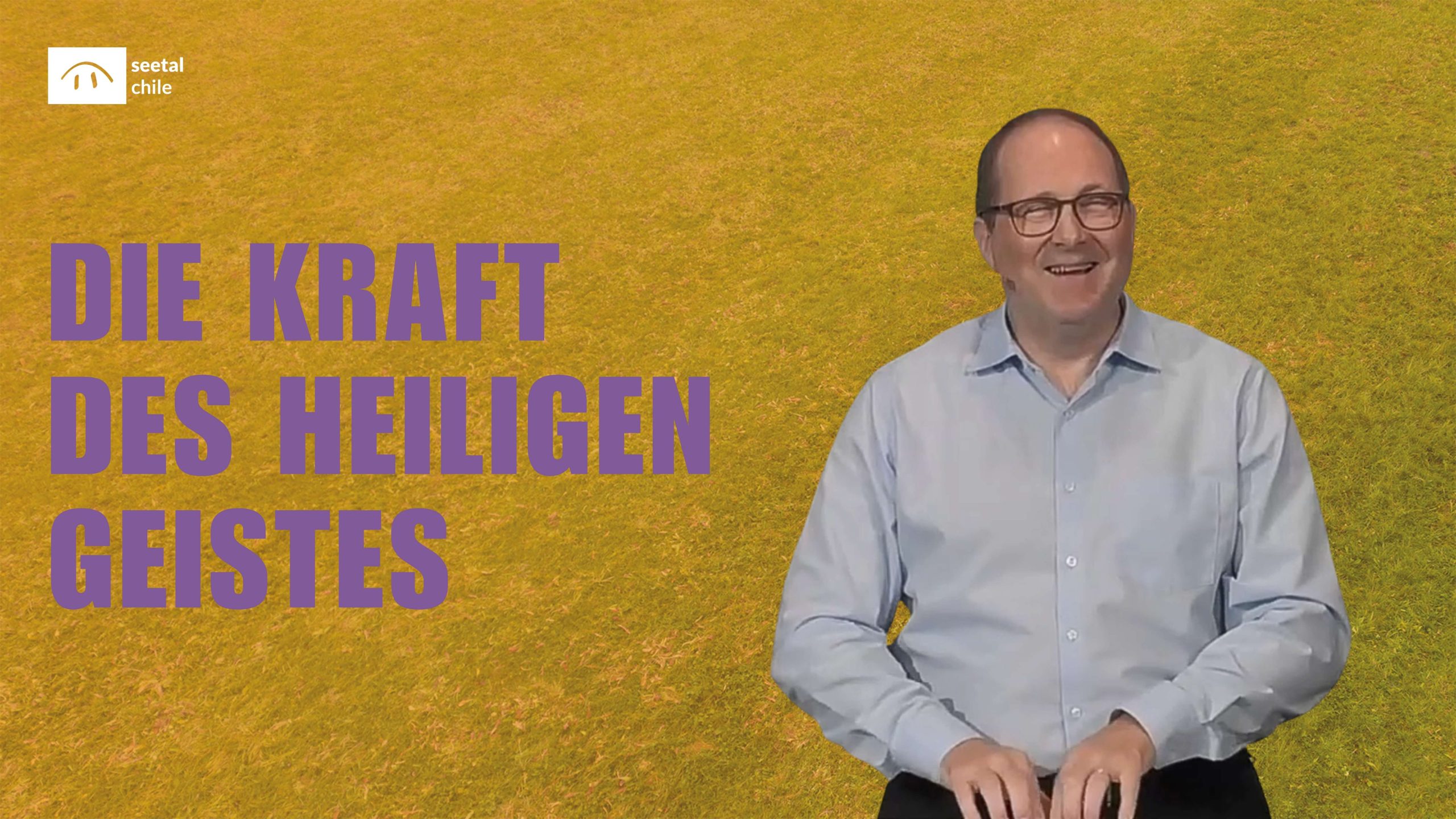Eva – Longing for Happiness
Series: Like you and me | Bible text: Genesis 3:6,7
Eve was tempted by the serpent in the Garden of Eden on three levels: Greed, avarice and ostentation. These are the same temptations we still encounter today and seem to be the apt response to our longing for happiness. The result is ultimately shame and deficit. People do not become happy through external things, but in love for God and in being for other people.
Hans had served his boss faithfully for seven years and received a lump of gold as big as his head as a reward. On the way home he exchanged the gold for a horse, then the horse for a cow, the cow for a pig, then the pig for a goose and the goose for a whetstone. After the whetstone accidentally sank in a well, he thanked God: «I am the happiest person in the world«he cried, and with a light heart and free of all burdens, he wandered home to his mother. Although Hans had less and less, he became happier and happier. To what extent does this parable have a kernel of truth?
Sweet temptation
Many people are concerned with being happy, feeling an inner peace, being serene and cheerful. But no less many believe that they have to define their happiness externally. They think that if they were successful, they would also be happy. Equipped with this mindset, Eve stood before the forbidden tree at the very beginning of human history: «The woman saw: the fruits were so fresh, delicious and tempting – and they would make her wise! So she took a fruit, bit into it and gave it to her husband too. Then he also ate of the fruit»(Genesis 3:6 NL). Everything begins with the eyes. Eve sees something that is aesthetically beautiful, tastes delicious and makes her smart. All things that promise happiness: Delight of the palate, sensual pleasure and status. Here we encounter a principle that still works today.
A few thousand years later, John would write: «For the world knows only the desire for physical gratification, the greed for everything our eyes see, and the pride in our possessions. All this is not from the Father, but comes from the world»(1 John 2:16 NL).
- Desire for physical gratification (greed): This is about the desire to satisfy physical needs, the desire for sensual pleasure. Such desire also characterises sexuality, but is not limited to it. It is about a desire to have and enjoy, which is directed towards oneself. The Milka commercial «The sweetest temptation since chocolate was invented» fits this area.
- The greed for everything our eyes see (avarice): This means the desire to possess and accumulate material goods. We see the beautiful clothes in the catalogue, the neighbour’s e‑bike, the beautiful house or the much more soulful husband of the colleague.
- The pride of our possessions (ostentation)We are preoccupied with our own status and want to be more. Instagram is institutionalising this temptation. Everyone presents themselves in the best light and shows off their possessions and skills.
When the serpent tempted Eve, he did it in these three areas. When the devil tempted Jesus in the desert, his attacks were also aimed at these three areas.
As early as the 5th century BC, there was a minority among the philosophers, the so-called hedonists. She believed that a good life consisted of consuming as many immediate pleasures as possible. The word hedonistic means joy, pleasure, delight, sensual desire. Most philosophers held that immediate pleasures were base, decadent, even animal. What constitutes a good life are above all the so-called higher pleasures. Only an honourable or virtuous life is a good life.
Bitter disappointment
Eva, at any rate, expected a lot from the enjoyment of the fruit. Like you and me. But things turned out differently: «At that moment, the eyes of the two were opened and they suddenly realised that they were naked. So they wove fig leaves together and made themselves loincloths.»(Genesis 3:7 NL). Exciting! The temptation worked through the eyes («The woman saw»). But it was only here that Adam and Eve’s eyes were opened. And what they saw was frustrating: shame, deficit and effort. Instead of happier, their lives became harder and more tedious.
In an article on happiness research I read that starting with the happiness level of the blood, the serotonin level, there are few external events that can reduce or raise the level over a long period of time. You can lose a foot, get the news that you are infertile, or watch your house burn down. The serotonin level drops spontaneously due to such strokes of fate, but six months later you are as happy or unhappy as before. It is similar when you buy an even bigger house or a more expensive car. Dan Gilbert calls this the Psychological immune system.
True happiness
Researchers had found out that it is other things that are decisive for the feeling of happiness. One of the most important causes is said to be a good marriage. Speaking of marriage; the Bible says something very similar, even though it does not refer to marriage as the community of a man and a woman. But here too it is about a stable, lasting relationship: «Happy are those who are invited to the marriage supper of the Lamb»(Revelation 19:9 NL). Who then is invited to this wedding feast? In the continuation of the passage from John quoted above, it says: «But this world is passing away with all its temptations. But whoever does the will of God will live for eternity»(1 John 2:17 NL). Being invited to the marriage supper of the Lamb and live in eternity are synonyms. The condition is that we do the will of God, which is ultimately about living in a personal relationship with Jesus, the Lamb of God.
This togetherness with God makes for lasting happiness. God and man – they fit together like a vessel and its lid. Blaise Pascal spoke of a God-shaped vacuum in man, a longing, a desire that can only be filled by God. Anything that can also be taken away from you is not a factor of happiness. Good Hans in Luck had recognised this correctly. Happiness cannot be achieved through dependencies on external things. Happiness means an inner state. When I am in harmony with God and – as a consequence – with myself, then I am happy. And when my life becomes a blessing for others, I feel happy. It is not in revolving around myself and my needs that I become happy, but when I serve others and awaken life in them.
This is exactly what Paul is talking about when you say the following in a text where he talks about all his hardships: «Our heart is full of sorrow, yet we constantly experience new joy. We are poor, but we make others rich. We own nothing and yet have everything» (2 Corinthians 6:10 NL). That sounds absurd: How can someone who has a heart full of sorrow and possesses nothing, yet constantly have new joy – that is, be happy? By making others rich! David also talks about this: «Happy is he who stands by others in need!»(Psalm 41:2 NGÜ).
How enjoyable are the following activities for you? Give values between 0 (no enjoyment) and 10 (highest enjoyment): your favourite chocolate, fighting for your country in war, accompanying a person in need, indulging in your hobby, raising children, telling unchurched people about Jesus, stopping global warming, sex, watching the World Cup, visiting a person in a risk group, a wellness holiday in the Caribbean. Most people rate sex, chocolate, the World Cup and wellness at 9 or 10, while raising children is found at 2 or 3. Follow-up question: How meaningful do you think the above activities are? Again, give values between 0 and 10. For most people, the order now looks quite different. Hmmm. What really counts now? Which activities make for a happy life – the «pleasurable» ones or the «meaningful» ones? A Harvard psychologist gives an answer in a remarkably crass way: «The Nazi war criminal bathing in the sun on the Argentinean beach is not really happy, while the pious missionary who has just been eaten alive by cannibals is happy.»
Blessed to be a blessing. A person who has filled his vacuum with God has found the meaning of life. From this he can lead a meaningful life and become a blessing to others. Which person in need could you stand by in the coming week? Don’t do it for selfish reasons, because you are looking for happiness. Do it out of love and happiness will find you!
James aptly summarises today’s sermon in his letter: «Happy is he who patiently endures the trials of faith. When he has proved himself, he will receive the eternal life that God has promised to those who love him.»(James 1:12 NL). Like Eve, we will face many temptations. Let us never believe when we are led to believe in great happiness through external things or prestige. Instead, you can say, «Lie, you are exposed!» Every person becomes happy in the love for God and in being there for other people. It is worthwhile to focus on this!
Possible questions for the small groups
Reading the Bible text: Genesis 3:1–7
- The serpent tempted Eve in the areas of aesthetic beauty, delicate taste and higher status through cleverness. Where do you experience corresponding temptations?
- What truths are hidden in the story of Hans in Luck?
- Do you believe that «meaningful» things cause more happiness than «pleasurable» things? What does that mean?
- Will you be invited to the «marriage supper of the Lamb» (Revelation 19:9)? What is the basis of your answer?
- Which person in need could you stand by in the coming week?





